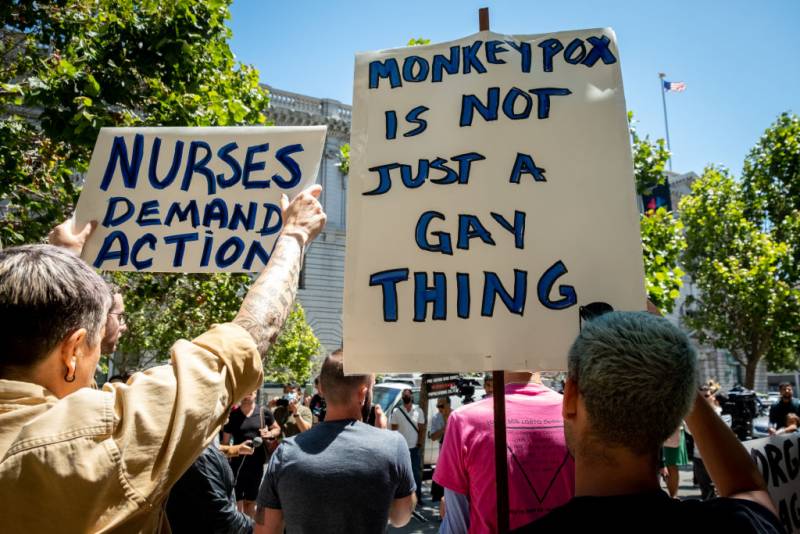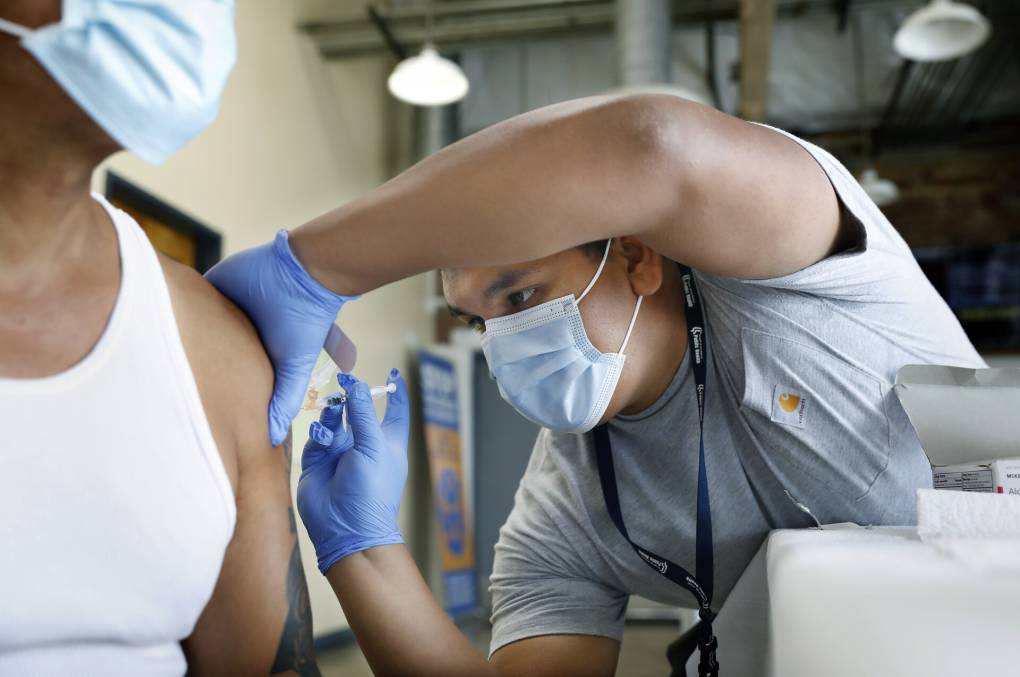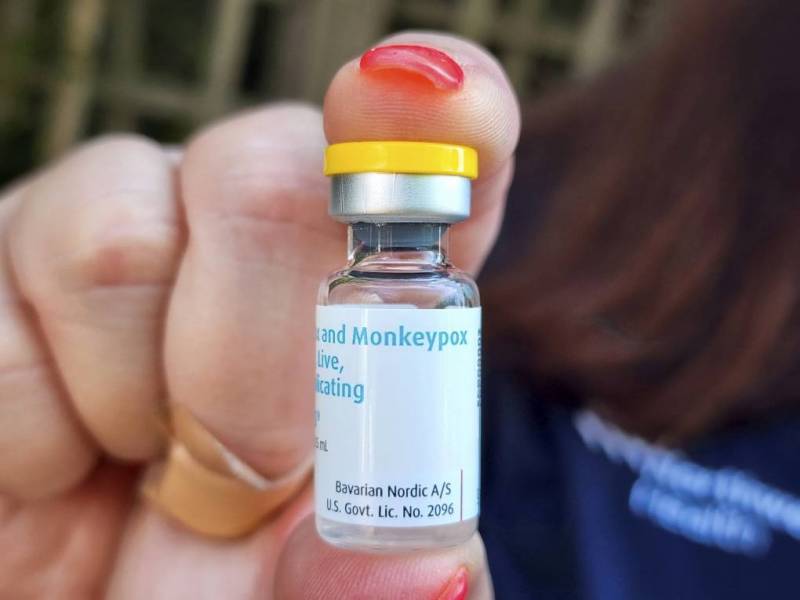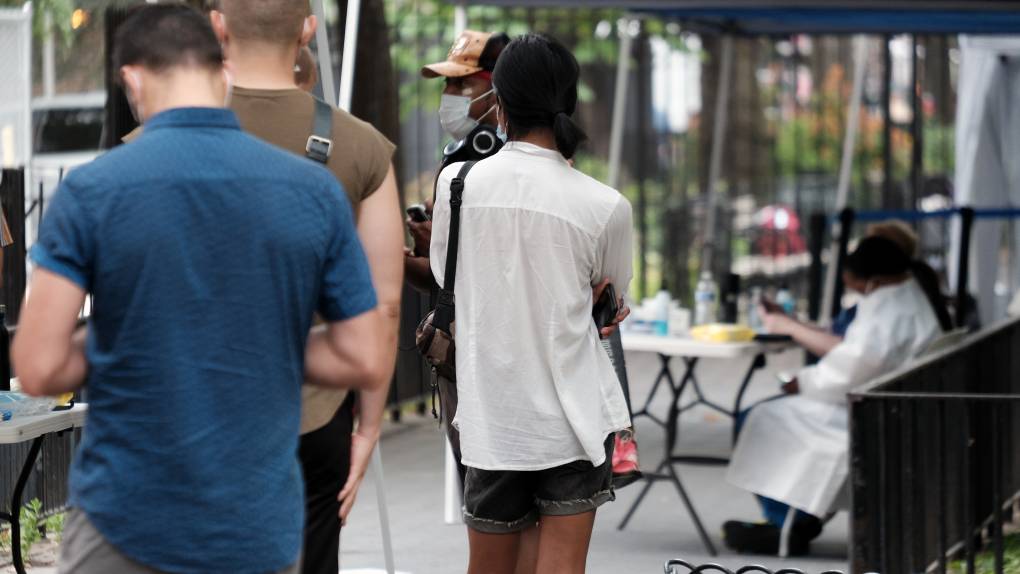San Francisco Mayor London Breed announced a state of emergency Thursday over the rapidly growing number of monkeypox cases in the city.
The legal action, which goes into effect Monday, allows officials to mobilize personnel and resources and cut through red tape to get ahead of the mounting public health crisis. City officials hope that the declaration will also pressure the federal government to increase the available supply of the monkeypox vaccine.
“We are at a very scary place,” Breed said at a press conference held at City Hall on Thursday. “We don’t want to be ignored by the federal government.”
Earlier this week, San Francisco had to shut down its primary monkeypox vaccination clinic at SF General Hospital for the second time this month after it again ran out of doses, turning away long lines of people. The San Francisco Department of Public Health (SFDPH) said it was expecting to receive an additional 4,220 doses of the vaccine this week, bringing the total number of vaccines received to roughly 12,000 — about a third of the supply they’ve requested from the federal government.
“We have a solution in the vaccines and we want to make sure that everyone who is requesting a vaccine gets one,” Breed said.
News of the declaration — which comes amid the ongoing COVID-19 pandemic — was welcomed by LGBTQ+ advocates who have grown increasingly frustrated by what they call a lackluster response from the city and the federal government to a virus that can infect anyone, but has so far primarily affected communities of gay and bisexual men, and men who have sex with men.
“We know the challenges of what happens in San Francisco when we put public health on the back burner,” said Breed. “During the AIDS crisis … San Francisco was virtually left on its own to fend for itself.”
During the initial onset of the HIV/AIDS crisis in San Francisco during the 1980s, the majority of infections were among gay and bisexual men, and men who have sex with men. City Health Director Dr. Grant Colfax praised the way local care providers reacted to HIV/AIDS back then and said that response has informed the way San Francisco is responding to monkeypox now.
“As a gay man who came out and did my medical training during the peak of the AIDS epidemic,” Colfax said, “I personally and professionally experienced the indifference, the homophobia and the stigma by the medical and public health institutions in regard to prioritizing HIV prevention and care.”
“But San Francisco’s community-driven and responsive care systems were a notable exception.”



